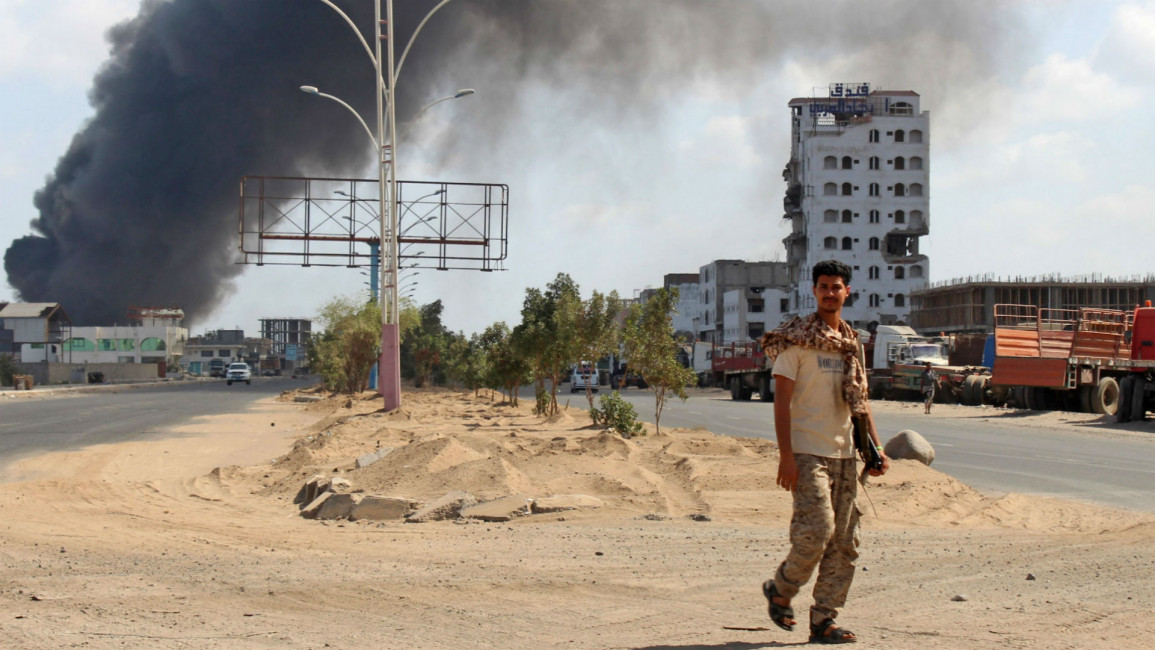Saudi-led coalition bombs southern separatists in Yemen after Aden 'coup'
A Saudi-led coalition launched a strike against southern separatists in Yemen on Sunday after they seized the presidential palace in second city Aden in deadly fighting that threatened to deepen the country's humanitarian crisis.
The seizure, decried by the Riyadh-backed Yemeni government as a UAE-supported coup, reflects deep divisions between secessionists and loyalist forces, both of whom have fought Shia Houthi rebels.
"The coalition targeted an area that poses a direct threat to one of the important sites of the legitimate government," a coalition statement said, calling on the separatist Southern Transitional Council to withdraw from positions seized in Aden or face further attacks.
It did not specify the target but residents in Aden told AFP it was an airstrike against separatist camps in the city.
Riyadh-based Yemeni President Abedrabbo Mansour Hadi is backed by the coalition - led by Saudi Arabia and its ally the United Arab Emirates - that is battling the Iran-aligned Houthis.
But another force in the anti-Houthi coalition - the UAE-trained Security Belt Force - has since Wednesday been battling loyalists in Aden, the temporary base of Hadi's government.
 |
The International Crisis Group think tank warned that the Aden clashes 'threaten to tip southern Yemen into a civil war within a civil war' |  |
The Security Belt Force is dominated by fighters who back the Southern Transitional Council (STC), which seeks to restore south Yemen as an independent state as it was from 1967-1990.
The International Crisis Group think tank warned that the Aden clashes "threaten to tip southern Yemen into a civil war within a civil war."
"Such a conflict would deepen what is already the world's worst humanitarian crisis," it said.
The coalition called for an "immediate ceasefire" and the Saudi foreign ministry has demanded an "urgent meeting" between the warring parties.
Both the Yemeni government and separatists said early Sunday they backed Riyadh's call for dialogue and a suspension of fighting.
Twitter Post
|
But in a sermon to mark the start of the Muslim Eid al-Adha festival, STC vice president Hani bin Breik said his group will not "negotiate under threat".
Government decries 'coup'
Saudi Deputy Defence Minister Khalid bin Salman also called for an "immediate cessation of hostilities and withdrawal from all forcefully occupied locations in Aden".
A Security Belt official told AFP Saturday the force had seized the presidential palace - largely symbolic, due to Hadi's absence - without a fight.
"Two hundred soldiers from the Presidential Guard were given safe passage out of the palace," the official said. A witness confirmed the complex had been handed over.
Yemen's government earlier blamed the STC and the UAE for staging a "coup" against it.
The foreign ministry demanded "the UAE halt its material support and withdraw its military support, immediately and fully, from the groups that have rebelled against the state".
The STC's spokesman said the council was working to restore the water network, damaged in the fighting.
Ties between the Security Belt and Hadi loyalists have been strained for years, and this week was not the first time they have engaged in armed clashes.
They fought a three-day battle in January 2018 that killed 38 people and wounded 222 others after the government prevented a rally by separatists.
The Security Belt has accused Hadi's backers of allowing Islamists into their ranks and of supporting the Muslim Brotherhood.
The Saudi-led coalition intervened in Yemen in 2015 to back the government against the Houthis, who are supported by Riyadh's regional rival Iran.
The Houthis had overrun large parts of northern and western Yemen, including the capital Sanaa, which they still control.
UAE Foreign Minister Abdullah bin Zayed Al-Nahyan said Abu Dhabi was "exerting all efforts to de-escalate the situation", Emirati state media reported.
The two camps should focus their efforts on fighting the Houthis instead of each other, he said.
Follow us on Twitter: @The_NewArab



